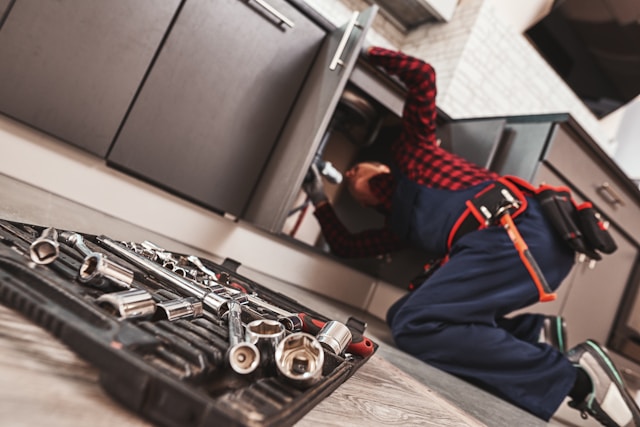Plumbing issues can disrupt daily life and lead to costly repairs if not addressed early. However, many common plumbing problems are preventable with proper care and maintenance. Here’s a guide to avoiding frequent plumbing issues and keeping your system in top condition.
1. Prevent Clogged Drains
The Problem:
Clogs in sinks, showers, or toilets can cause slow drainage, backups, and even pipe damage.
How to Prevent It:
- Use drain covers to catch hair, food scraps, and debris.
- Avoid pouring grease, oils, or coffee grounds down the kitchen sink.
- Flush drains with hot water regularly or use a vinegar and baking soda mix to clear minor buildup.
2. Avoid Frozen Pipes
The Problem:
In cold climates, uninsulated pipes can freeze and burst, leading to water damage and costly repairs.
How to Prevent It:
- Insulate pipes in unheated areas, such as basements, garages, and crawl spaces.
- Let faucets drip during freezing weather to keep water flowing.
- Seal any cracks or gaps in walls to block cold air from reaching pipes.
3. Fix Leaks Promptly
The Problem:
Small leaks can waste water and worsen over time, leading to mold growth and structural damage.
How to Prevent It:
- Check faucets, pipes, and appliances for leaks regularly.
- Replace worn-out washers or seals on faucets.
- Tighten pipe connections or call a plumber for persistent leaks.
4. Protect Your Garbage Disposal
The Problem:
Misuse of the garbage disposal can lead to clogs and mechanical failures.
How to Prevent It:
- Avoid putting hard items (bones, pits) or fibrous materials (celery, corn husks) into the disposal.
- Run cold water while operating the disposal to flush debris.
- Clean the disposal regularly with ice cubes and citrus peels to remove buildup and odors.
5. Monitor Water Pressure
The Problem:
High water pressure can strain pipes and fixtures, increasing the risk of leaks and bursts.
How to Prevent It:
- Use a water pressure gauge to test your home’s pressure; it should be between 40–60 psi.
- Install a pressure regulator if your water pressure is too high.
- Call a plumber if you notice sudden changes in water pressure.
6. Maintain Your Water Heater
The Problem:
Sediment buildup in the tank can reduce efficiency and cause the water heater to fail prematurely.
How to Prevent It:
- Flush the tank annually to remove sediment.
- Check the temperature setting; keep it at 120°F to prevent scalding and save energy.
- Inspect the anode rod and replace it if it’s corroded.
7. Keep Toilets Free of Non-Flushable Items
The Problem:
Flushing inappropriate items can cause blockages and damage to your plumbing system.
How to Prevent It:
- Only flush toilet paper and human waste.
- Dispose of wipes, feminine hygiene products, and diapers in the trash.
- Educate family members on what should and shouldn’t go down the toilet.
8. Watch for Sewer Line Problems
The Problem:
Tree roots, clogs, or aging pipes can lead to sewer backups and unpleasant odors.
How to Prevent It:
- Avoid planting trees near sewer lines.
- Schedule regular sewer inspections, especially in older homes.
- Install a backflow prevention valve to protect your home from sewer backups.
9. Test Shut-Off Valves
The Problem:
Faulty shut-off valves can delay your response to leaks or emergencies, increasing water damage.
How to Prevent It:
- Locate your main water shut-off valve and individual fixture valves.
- Test the valves periodically to ensure they operate smoothly.
- Replace stiff or damaged valves as needed.
10. Schedule Regular Plumbing Inspections
The Problem:
Undetected issues, such as hidden leaks or corroded pipes, can escalate into major problems over time.
How to Prevent It:
- Hire a professional plumber for annual inspections.
- Focus on high-risk areas like water heaters, drain lines, and exposed pipes.
- Address minor issues before they turn into costly repairs.
Conclusion
Preventing common plumbing problems is easier than dealing with emergencies. With regular maintenance, responsible usage, and timely inspections, you can keep your plumbing system running efficiently and avoid unnecessary expenses.
Remember, when in doubt, consult a licensed plumber to handle complex issues or to provide guidance on maintaining your system. A little proactive care goes a long way in ensuring your home’s plumbing remains trouble-free!
